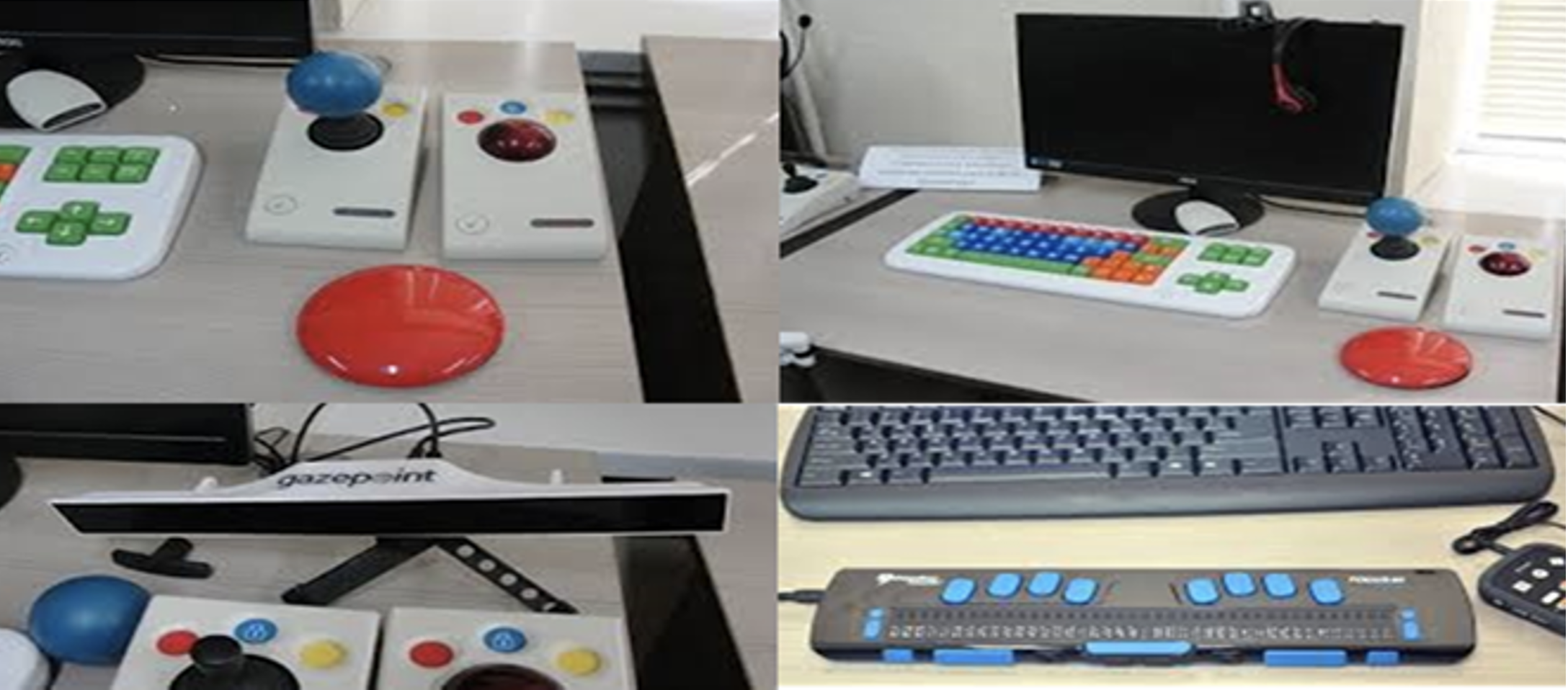5 November 2021
In September 2021, the International Telecommunication Union (ITU) jointly with the Institute of Electronics and Telecommunications (IET) organized a one-week training course on inclusive technologies for school teachers in Bishkek, Kyrgyz Republic. The training, which was attended by informatics teachers and school deputy directors for methodological and tutorial work, was held at the Iygilik information and training centre for persons with disabilities, located in the IET.
Training participants got acquainted with the specialized assistive equipment for persons with disabilities and were trained on how it works.

Also, within the framework of the course, the participants shared their experiences and discussed challenges related to the education of persons with disabilities, including the need:
- to create a strong regulatory environment for education and employment of person with disabilities;
- to create an enabling environment and provide technical means to enable persons with disabilities passing general republic test;
- for financial support to organize trainings and develop special training materials for teachers working with person with disabilities;
- and to motivate the teachers.

The training participants were of one mind that the concept of inclusive education should serve to ensuring every child’ s right to receive a high-quality education jointly with other children.
The Iygilik centre, where the training took place, was created in 2015, within the framework of the WTDC-14 RI CIS2: Ensuring access to telecommunications/ICT services for persons with disabilities. Thanks to equipment purchased by ITU, the following working places were created in the Iygilik: six working places for persons with visual impairment (including three working places for blind persons and three working places for partially sighted), six working places for persons with locomotor system disfunction (including two working places for persons with muscular atrophy, two working places for persons with myopathy, and two working places for persons with spastic hyperkinetic disorder of hand function, and two working places for users without upper limbs), two working places for persons with hearing impairment, and one working place for administrator.
The Institute of Electronics and Telecommunications with the project on Creation of Information and Training Centre for Persons with Disabilities was among five champions of 2016 WSIS prize under Action Line C3 Access to information and knowledge (Costa Rica, Algeria, UAE, Kazakhstan, Kyrgyzstan).
The Iygilik centre has been active over the five years since its creation: it hosts trainings on digital skills for persons with different disabilities, as well as inclusive technologies trainings for trainers working with persons with disabilities, which were several times conducted in cooperation with the UNESCO IITE. Also, the IET actively shares its experiences with the Belarusian State Academy of Communications, where an ICT training centre for persons with hearing impairment was created in 2016, within the framework of the same RI CIS2 approved by WTDC-14.

When organizing trainings for persons with disabilities, the IET actively cooperates with national institutions: the Ministry of Education, Equal Opportunities Social Centre, SOS Children's Village Public Foundation (Bishkek), Bishkek Population Employment Authority within the framework of GIZ programme on Support of Employment and Education.
Iygilik experts developed methodology guidelines and recommendations for training with the use of adaptive infocommunication technologies of persons with visual, hearing and locomotor system impairment; adapted for persons with disabilities general higher education programme on Information Systems and Technologies; developed a questionnaire to monitor needs of persons with disabilities in the area of higher professional education. Currently, the Iygilik works on the development of education materials for persons with disabilities for a number of subjects.
It should be noted, that digital inclusion of different categories of the population (children, women, elder persons, persons with specific needs) is one of key areas of the ITU activities, while accessibility of telecommunications/ICT for persons with disabilities is rather the most important segment of this activity area. The accessibility issue not only remains relevant, but also becomes more topical. This is due to growing number of persons with disabilities because of life extension and ageing of population. According to WHO, persons with disabilities account for 10 to 20 percent of the global population.
The Kyrgyz Republic is one of the most active ITU Member States in the CIS Region in terms of digital inclusion of persons with disabilities. After all, 3,000 to 4,000 persons in this country are recognized as persons with disabilities, while most of them cannot acquire an education.
ITU Member States from CIS Region inevitably consider the issue of digital inclusion and accessibility as one of their priorities. In the current cycle, this issue continues to be solved through implementation of WTDC-17 RI2: Use of telecommunications/information and communication technology to ensure inclusive, equitable, quality and safe education, including the enhancement of women’s knowledge of ICTs and e-government. Also, at the Regional Preparatory Meeting for CIS Region which took place in 2020, the countries indicated the issue of ICT accessibility for persons with disabilities as one of their priorities to form regional initiatives for the forthcoming WTDC.
|